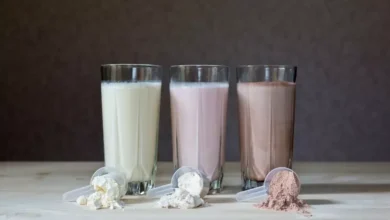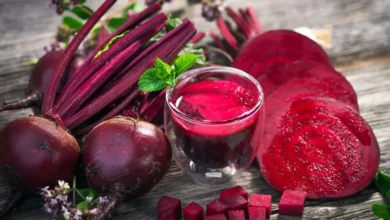The Role of Antioxidants in Preventing Chronic Disease
In today’s fast-paced world, where stress, pollution, and poor diet choices are common, chronic diseases like heart disease, cancer, and diabetes are on the rise. But there’s a group of powerful compounds found in everyday foods that can help protect your body: antioxidants.
Antioxidants act like your body’s internal defense squad, neutralizing harmful molecules known as free radicals. Let’s explore what antioxidants are, how they work, and how including more of them in your diet can play a major role in preventing long-term health issues.
What Are Antioxidants?
Antioxidants are compounds that protect cells from damage caused by oxidative stress. This stress happens when there’s an imbalance between free radicals (unstable molecules that damage cells) and your body’s ability to neutralize them.
Common antioxidants include:
- Vitamin C
- Vitamin E
- Beta-carotene
- Selenium
- Polyphenols (found in tea, berries, and dark chocolate)
- Flavonoids (found in fruits, vegetables, and wine)
Your body produces some antioxidants naturally, but most come from food sources, especially plant-based ones.
How Free Radicals Cause Damage
Free radicals are produced in the body as a natural part of metabolism. However, they increase due to external factors like:
- Smoking
- Air pollution
- Alcohol
- Processed foods
- Excessive sun exposure
- Stress
When free radicals build up, they damage DNA, proteins, and cell membranes. This oxidative damage is linked to the development of many chronic conditions.
Antioxidants and Chronic Disease Prevention
Here’s how antioxidants play a critical role in fighting disease:
1. Heart Disease
Antioxidants help prevent the oxidation of LDL cholesterol (the “bad” kind), which is a major step in the development of heart disease. They also support healthy blood vessels and reduce inflammation.
Top heart-supporting antioxidants:
- Flavonoids in dark chocolate and berries
- Vitamin C in citrus fruits
- Vitamin E in nuts and seeds
2. Cancer
While no food can guarantee prevention, antioxidants help protect DNA from mutations that can lead to cancer. They also support the immune system in identifying and destroying abnormal cells.
Top cancer-fighting antioxidants:
- Lycopene in tomatoes
- Sulforaphane in broccoli
- Polyphenols in green tea
3. Type 2 Diabetes
Oxidative stress is a major contributor to insulin resistance. Antioxidants improve insulin sensitivity and reduce inflammation, helping prevent and manage type 2 diabetes.
Top antioxidants for blood sugar:
- Alpha-lipoic acid in spinach and broccoli
- Curcumin in turmeric
- Anthocyanins in blueberries
4. Brain Health and Alzheimer’s
The brain is especially vulnerable to oxidative damage. Antioxidants help protect neurons and may slow down cognitive decline and the development of neurodegenerative diseases.
Top brain-boosting antioxidants:
- Omega-3 rich foods like salmon
- Vitamin E from sunflower seeds
- Resveratrol in grapes and red wine
5. Eye Health
Antioxidants protect against age-related macular degeneration (AMD) and cataracts.
Top antioxidants for vision:
- Lutein and zeaxanthin in leafy greens
- Beta-carotene in carrots and sweet potatoes
- Zinc in legumes
Best Food Sources of Antioxidants
You don’t need supplements to get antioxidants. Just eat a variety of colorful, whole foods like:
- Berries (blueberries, strawberries, raspberries)
- Leafy greens (spinach, kale, collard greens)
- Nuts and seeds (almonds, sunflower seeds)
- Whole grains (quinoa, oats)
- Spices (turmeric, cinnamon, cloves)
- Legumes (black beans, lentils)
- Dark chocolate (70% cacao or higher)
- Green and black tea
- Fruits (oranges, grapes, pomegranates)
The more colorful your plate, the better your antioxidant intake.
Should You Take Antioxidant Supplements?
While supplements may seem like an easy fix, research shows that getting antioxidants from food is far more beneficial than pills. In some cases, high-dose antioxidant supplements may even have adverse effects or interfere with medications.
Whole foods offer a complex mix of nutrients and fiber that work synergistically in the body—something that isolated supplements can’t replicate.
If you’re considering antioxidant supplements, consult a healthcare provider first.
Tips to Maximize Antioxidant Intake
Here are a few simple ways to make antioxidants a daily habit:
- Eat a rainbow: Include fruits and vegetables of different colors every day.
- Snack smart: Choose nuts, dark chocolate, or berries instead of processed snacks.
- Use herbs and spices: Add turmeric, ginger, and oregano to meals.
- Drink antioxidant-rich beverages: Try green tea, pomegranate juice, or a smoothie.
- Limit processed foods: Focus on whole, unprocessed ingredients.
Final Thoughts: Antioxidants as Everyday Allies
Antioxidants aren’t just trendy buzzwords—they’re essential defenders of your health. By helping neutralize free radicals, they reduce the risk of inflammation, cell damage, and chronic diseases.
Instead of chasing miracle pills, the best approach is to build a diet rich in whole, vibrant, plant-based foods. Every colorful bite is a small step toward long-term well-being.
So, load up on berries, sip your green tea, and sprinkle those leafy greens onto your plate. Your future self will thank you.

Hello! My name is Alan Teixeira and I am passionate about helping people live healthier, more balanced lives. From mindful eating to daily habits that promote physical and mental well-being, I believe that small, consistent changes can lead to powerful transformations.
I created this blog to share practical tips, reliable information, and thoughtful insights that can inspire you to take better care of yourself—with balance, mindfulness, and positivity.
If you are looking to improve your health, nourish your body, and build a lighter, more fulfilling routine, you are in the right place. Welcome!





